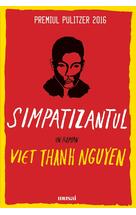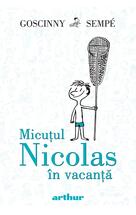The Sympathizer
Viet Thanh Nguyen creates through his 2016 Pulitzer winner, The Sympathizer, a vivid imagery of the Vietnam War, and a solid story of divided interests that coexist within the same conscious. A one-fold narrative, imbued with a highly-reflective tone, however, devoid of sentimentalism.
All throughout the novel, I had mixed feelings regarding this reading experience. On the one hand, I enjoyed the socio-political context and the minute details with regards to the 1970’s era, but, on the other hand, I would have loved a much more personal recount of the events. The semi-detached accent and the lack of emotion in key moments, it’s what pushes away the reader, eliminating almost all prospects of empathy. Also, I kept waiting for the prose to get “tremendously funny” as the first cover says, but I could not quite get to it.
The Sympathizer starts off as a rather difficult read, partly because of the digressions in the narrator’s confession, but mostly because the language sounds archaic (or maybe extremely correctly by the British canon), with weird phrasings (“but although I forgot not a word”, “but I was bothered not in the least”, “This was the prayer many a general and politician said”, etc.) and a lot of words of French descent (lycée, coup d’état, sorties, évacuées, cinema-marquee, valise, dames, entendre). But, once you get used to it and you sink into the rhythm, it becomes more eloquent. The slowly-paced, highly-elaborate and descriptive storytelling is annoying at times because the first person narrator is always in total control, gradually revealing his tale. Also, the action lingers at times without any prospects of actually leading somewhere, creating a state of interrupted expectancy.
Viet Thanh Nguyen hides under the mask of a nameless character, simply called the Captain, as the protagonist of this book. A part communist and a part American lover, this man of mixed loyalties carries with him the burden of being a bastard, a métis, an Eurasian or whatever you want to call him. Combined with his French roots and Catholic upbringing, we have a man trapped in between three different cultures, verging on the edge of the Vietnamese society because of his social status, at the height of his appraisal through his American studies and knowledge, while also dealing with his guilty conscious stemming from his religious legacy.
Citește în continuare aici.


